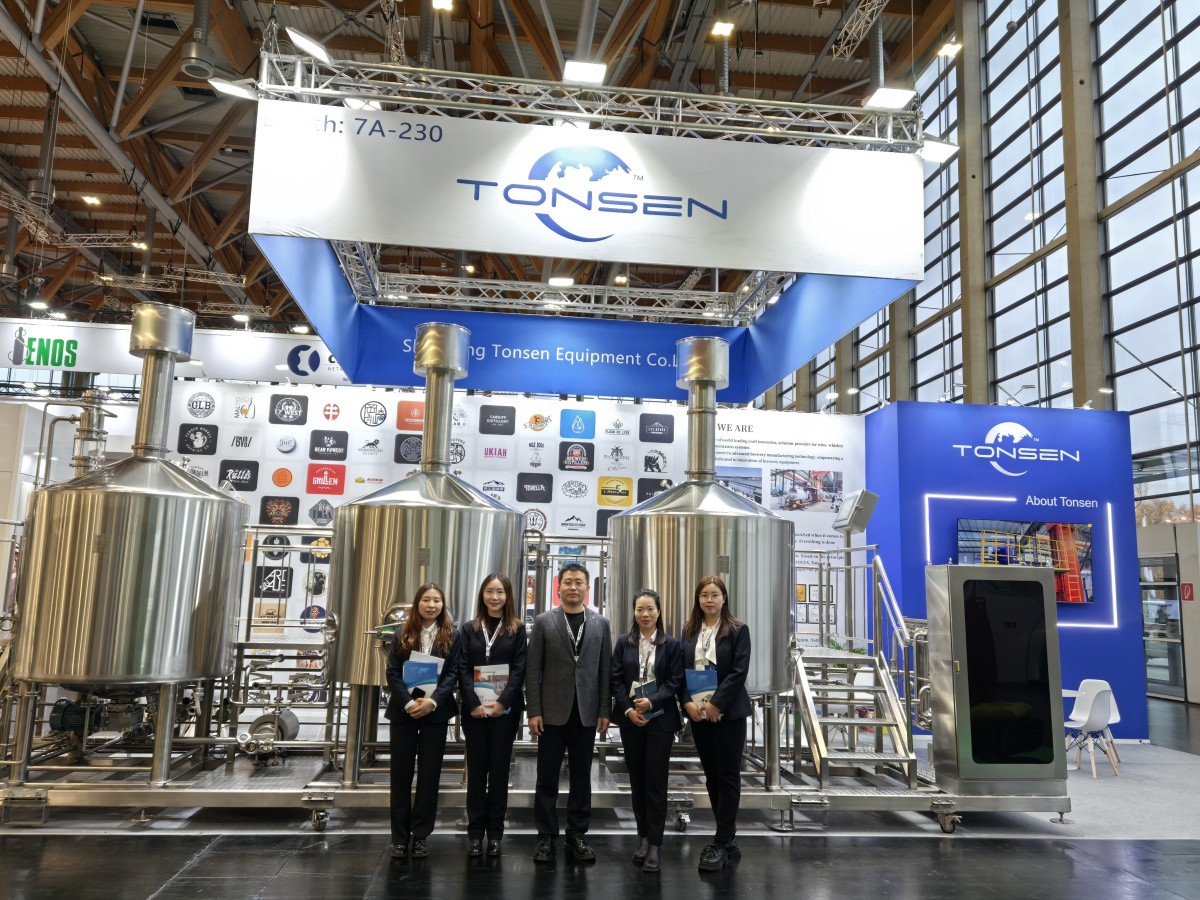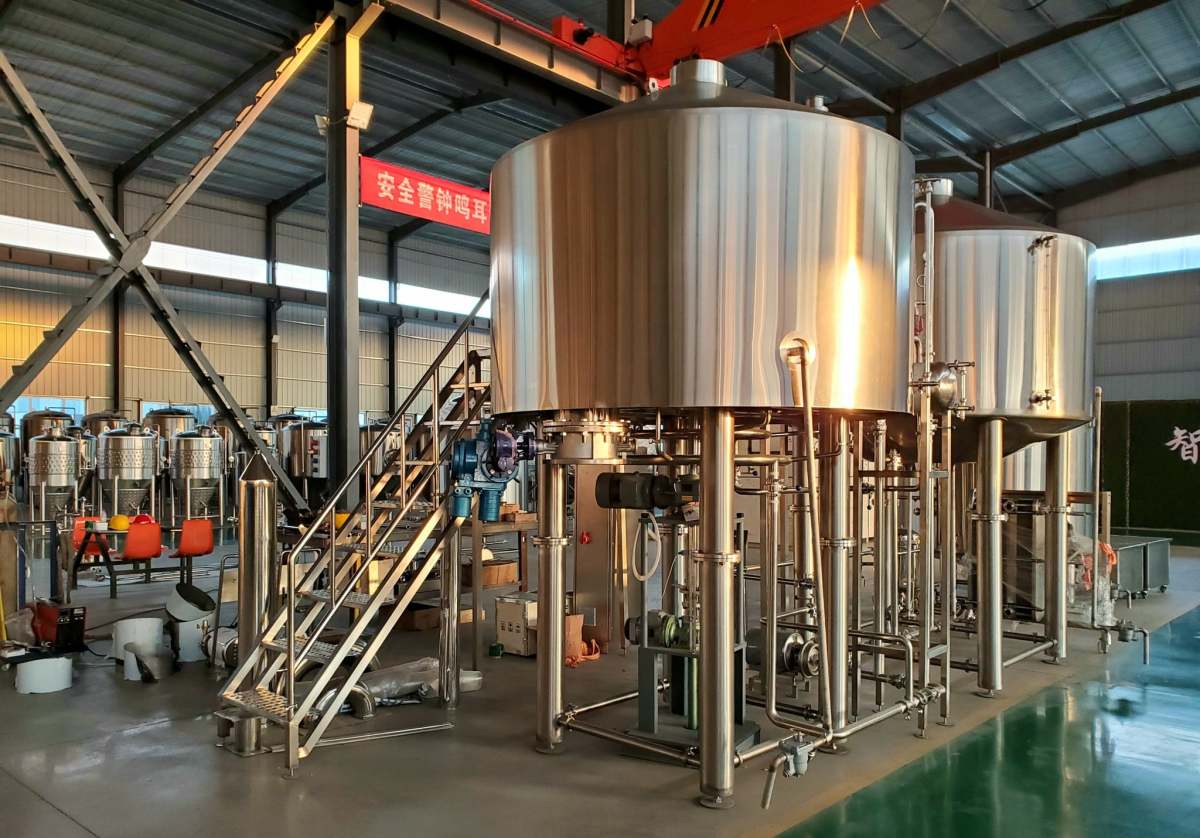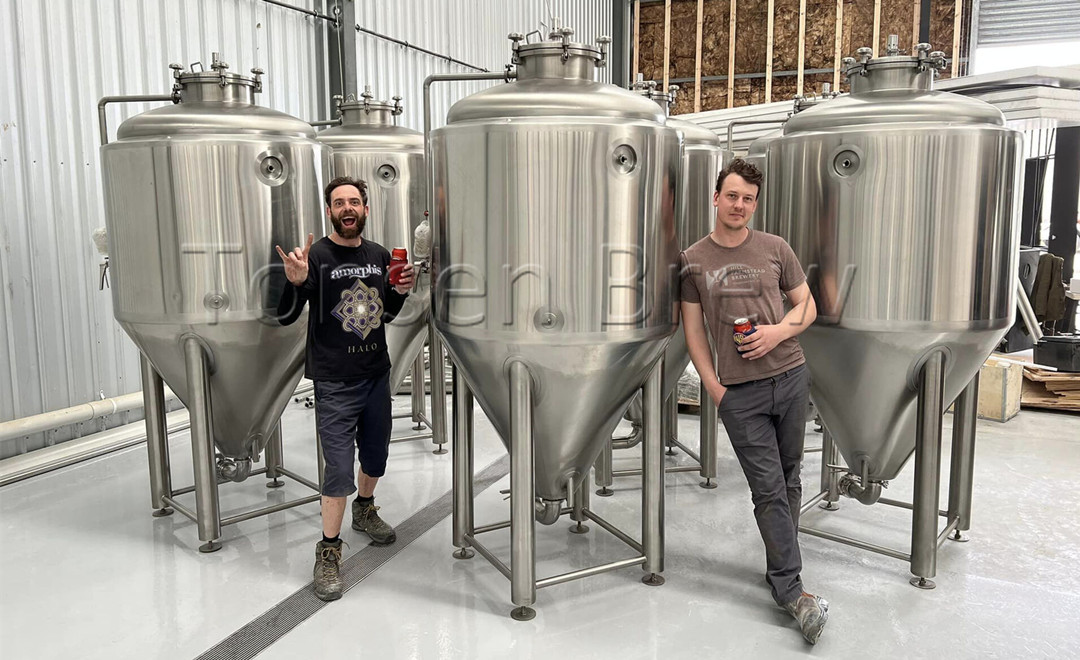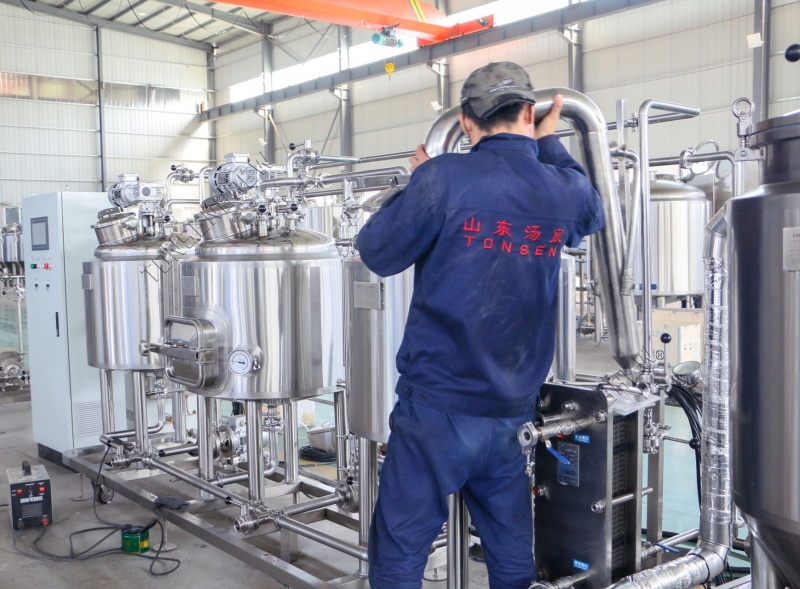RELATED
MESSAGE
What equipment is needed for a microbrewery?
1. Core Brewing System (Brewhouse System)
Malt Conversion & Boil
The core of a small brewery is a combined system of a mash tun and a boil kettle, also known as a "commercial brewing system". The typical batch size is between 300L-1000L, which can meet the needs of small and medium-sized production and facilitate automation upgrades at the "best brewing equipment" level:
Modular integration: saccharification, filtration, boiling and spin sedimentation four-in-one design, no need for separate tanks, saving space and improving thermal energy utilization.
Automation control: Equipped with a PLC touch screen, the saccharification schedule, temperature curve and time can be set to ensure that the wort extraction rate is stable at more than 70%.
Heating method: optional electric heating, steam heating or hot water circulation, some "all in one home brewing systems" are also compatible with home power supply.

Plate Heat Exchanger & Lauter
Two-stage plate heat exchanger: quickly cools the boiled wort at 95°C to 8°C, and recovers the waste heat to the hot water system for the next batch of saccharification, significantly reducing energy consumption by 15–30%.
Filtration system (Lauter Tun): 304 stainless steel coils and adjustable sieve plates, with a 98% efficiency in separating spent grains, reducing the amount of suspended matter entering the fermentation.
Fermentation and pressure fermentation (Fermentation Equipment)
Conical Fermenter
best conical fermenter: The conical bottom design facilitates yeast sedimentation and recovery; equipped with a cooling jacket and temperature sensor to achieve ±0.1°C accurate temperature control.
Unitank Fermenter: Integrates fermentation, cooling, and carbonization, supports the full process from fermentation to in-tank maturation, and is very suitable for "small breweries" with limited space.
Stainless Steel Pressure Fermenter
Pressure fermentation: It can maintain a pressure of 0.5-1.0 bar during the fermentation process, increase the solubility of CO₂, shorten the secondary fermentation and aging time, and is often used for high-end IPA and carbonated products.
2. Auxiliary & Utility
Cooling System
Refrigeration unit: 2-5HP compressor with 800L ice water tank to meet the temperature requirements of saccharification and fermentation processes; energy consumption is more than 20% lower than that of traditional air cooling systems.
Cooling coil and spiral cooler (Wort Chiller): Rapid cooling to prevent secondary contamination, suitable for small batch and multi-batch production.
Cleaning and disinfection (CIP & Sanitation)
CIP cleaning vehicle: Contains alkali liquid tank, disinfection tank and sanitary pump, automatically completes the cleaning and disinfection cycle, and reduces the risk of manual contact.
High-temperature steam and ozone disinfection: Deep sterilization to ensure a sterile environment for the fermentation tank and pipeline.
3. Packaging & Filling
Semi-automatic and fully automatic filling machines (Filling System)
Bottle/can/barrel integration: production capacity 200-2000 bottles/hour, integrating labeling, sealing and gas conditioning functions.
Second-hand equipment channel: "used brewery equipment for sale" platform (eBay, Craigslist, etc.) often has fermentation tanks and saccharification systems sold at 50% depreciation, with unit prices ranging from 1500-5000USD.
Packaging cost description
The total investment of a micro-workshop with an annual output of less than 50t is about RMB 700,000-1.1 million. Among them, the price of a 300L saccharification/boiling combination system is about RMB 50,000-80,000; the price of a 500L cone-bottom fermentation tank is about RMB 30,000-50,000; the price of a pressure fermentation tank is 50,000-70,000; the overall price of the refrigeration unit and ice water tank is about RMB 60,000-100,000; the CIP cleaning vehicle is about RMB 20,000-40,000; and the semi-automatic filling machine is in the range of RMB 20,000-50,000.

4. Home Brew Systems
Entry & Advanced Kits
Mr. Beer Complete Kit: Easy to use, suitable for beginners; includes fermentation barrels, bottle caps and basic tools.
Anvil Foundry All-In-One Brewing System: Integrates saccharification, boiling and cooling, a model of "all in one home brewing system", supporting intelligent recipe management.
Grainfather G70, Speidel Braumeister: 70L and above capacity, with semi-automatic control and temperature retracement curve function, suitable for small-scale commercial verification.
5. Advantages of Small Breweries
Flexibility & Innovation
Small batch production allows brewers to quickly test new recipes, and the cycle from concept to market testing is only a few weeks, far exceeding large manufacturers.
Community & Brand
Microbreweries often open taprooms, hold beer festivals and brewing experience classes to enhance interaction with consumers; for example, Mikkeller in the United States and BrewDog in the United Kingdom were initially produced in the form of rental equipment, and later stood out with distinctive brands.
Sustainability & Localism
Through waste heat recovery and water recycling, energy conservation and consumption reduction; using local raw materials to support farmers and achieve the "zero waste" concept, such as Florida’s Saltwater Brewery using degradable six-ring hoops.
Famous Beers from Small Breweries
Sierra Nevada Pale Ale: First brewed in 1980, using Cascade full flowers, it became a model of West Coast IPA, with an annual output of 500bbl in the first year.
Dogfish Head 90 Minute IPA: Originated from 20bbl micro equipment, it is famous for its continuous boiling technology and now produces more than 150,000bbl per year.
Russian River Pliny the Elder, Allagash White, etc. also come from small equipment combined with fine craftsmanship.
Procurement Channels and Cost Optimization (Procurement & Cost Optimization)
Combination of New and Old Equipment (New vs. Used Equipment)
New procurement: high-quality suppliers such as Micet Group, Gorman & Smith, etc. provide modular "brewery equipment companies" solutions, which guarantee quality but are more expensive.
Second-hand market: Purchasing second-hand fermentation tanks, boilers, etc. through the "used brewery equipment for sale" platform can save 30-50% of initial investment.
6. Professional equipment manufacturer: Tonsen (Shandong Tosen Beer Equipment Co., Ltd.)
With more than 20 years of industry experience and international production lines, Tonsen provides full-process equipment such as 100L-10000L multi-specification brewhouse system, fermentation system, cooling system, CIP system and filling system, and has passed ISO9001, CE, PED, SGS and other certifications. Its products are exported to more than 70 countries.
Provide one-stop services such as process design, 3D workshop layout, on-site installation and commissioning;
Material selection: food-grade 304/316 stainless steel, German laser cutting and automatic welding, precision polishing to ensure sterility and durability;
Customer cases cover craft beer, fruit wine and fermented beverages, etc., providing professional and reliable equipment solutions for small breweries.
Through the above systematic analysis and case presentation, from new equipment at the level of "best brewing equipment" to cost-effective "used brewery equipment for sale", combined with home "home brew systems" and "all in one home brewing system", as well as Tonsen's professional advantages in the field of small brewing equipment, it is expected to provide entrepreneurs and breweries under construction with a comprehensive and practical 4,000-word reference, helping the rapid growth of new forces in the craft brewing industry.

MESSAGE



